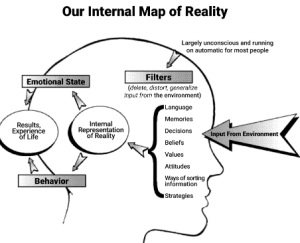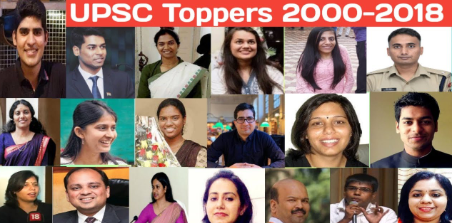How badly do you want to TOP the UPSC exam with AIR 1?

Be honest and note if you have ever had daydreams of being famous on Instagram, your photo splashed across the newspaper, coaching institutes clamoring for your attention as the news of you securing AIR 1 in the UPSC CSE goes viral? Everyone wants to be a UPSC topper, but no one realizes the price to be paid for harboring a half-cooked fantasy.
Far from being healthy, I argue that such thoughts are harmful and the root cause of much of the mental health challenges faced by UPSC aspirants.

Take a moment to become mindful of this ‘idealized UPSC topper’ movie running in your head and note the following-
1. It’s not a real person- the image in your head looks good all the time, works hard all the time, is never disheveled or unkempt- like the character in a comic book.
2. It’s an extremely narrow picture of life which does not take into account individual quirks, personal challenges etc. We visualize by isolating everything except UPSC preparation and play it like a movie in our head- full of selected choreographed events with no correspondence to reality (this is what defines ‘fiction’ from ‘non-fiction’)
3. It does not explain WHERE the fire for clearing the exam comes from- just that it is there. Even though mostly the motivation is borne out of desperation and negative experiences including past failures)
4. It does not accurately visualize the challenges faced during preparation, discounts the difficulty level and fast forwards the happy ending.
5. It ignores wasted days, the all too human errors, procrastination, and everything imperfect in the idealized topper because you don’t want to tarnish the mental image you hold so closely in your heart.
6. It fails to account for the reality of the UPSC exam (it is subjective, and randomness does play a non-trivial role) and makes a fundamental attribution error- you ascribe to the person (the idealized topper) what is outside their domain.
But if our daydreaming fantasies are such blatant distortions of reality then why do we indulge in them repeatedly?
Because they make us feel good. There is instant dopamine access without the real effort or hardships.
Sometimes reality is too harsh and distorting it Is the only option.
Humans need reality distortion to deal with the cold indifference of the universe.
The brain like to conserve energy and does not wish to expend effort and strain. Creating a fantasy is easier and much less strenuous.
Here are just some of the hidden psychological demons which flame the fire and make you believe in what is nothing but a mirage and a fantasy-
• Halo effect – If you notice one impressive trait about an individual (the UPSC topper for instance) you tend to believe that everything about that person must be special. You see a topper interview, feel impressed and conclude that the person must be special ignoring all extraneous factors such as luck, randomness, and subjectivity.
• Hindsight bias- You find evidence in the present to justify the beliefs of your past ( If you fail to clear the exam once your fear of failing again becomes exaggerated because you keep looking back to wasted days, wrong strategies and other potential mistakes to justify the failure even though other factors may have contributed more to the results ) While reviewing and improving might be a healthy thing to do, most of the times our analysis is far from objective,
• Cognitive Dissonance- if the gap between reality and your expectations is too large you feel psychological discomfort (The idealized topper vs your current state of preparation OR the ideal timeline of your preparation Vs the actual rate of progress). as you compare your reality with the idealized topper and realize just how far you are from achieving that state which amplifies your ‘inner critic’ and self-doubt increases- causing you to spiral into depressive thought cycles.
• Attribution error- You decide that the topper is special and place all the credit INSIDE the person while ignoring all the extraneous factors which may have contributed to their success. (Study environment, supportive parents, parents as civil servants resulting in better guidance and higher expectations, practice from previous attempts, atypically good interview etc

Knowing the above is the first step in falling out of the dream and stepping into the real one. A fantasy is ONLY useful as long as it provides you an accurate MAP of reality. It is only useful if it gives you meaningful prescriptions about what to do next.

It is actively harmful and dangerous if it takes you away from your goal in the real world, provides an escape from reality, helps you shirk responsibility OR creates negative emotions which are not conducive to your goal.
Be alarmed about the possibility that you may be harboring a parasitic fantasy if it makes you feel TOO good with little or no effort.

Know that perfect schedules, consistently met deadlines, organized goals and predictable results do not exist in the real world esp. in UPSC preparation. No matter how scientifically you try to achieve our goals, there is always something which remains unplanned or unexecuted.
The UPSC Preparation journey or the pursuit any other long-term goal looks like a little bit of unimpressive work every day. It looks like a long relationship with disappointment, uncertainty, and failure. It looks like a never-ending and self-inflicted punishment which gets hard to justify on most days.
And yet despite it ALL if you find the courage and honesty to keep pushing and accept the pain which lies ahead, sooner than later, your fantasy might just become reality- in the UPSC journey and beyond.

Respected Sir ? your efforts are reflected in each assignments as well as in the content that you are providing,First of all I am very grateful to you for making such type of efforts and awareness blogs.